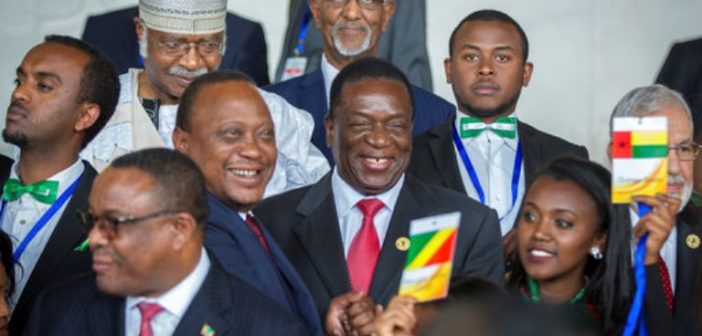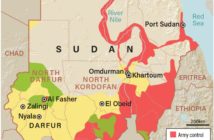The ending year 2018 saw many happening to the continent and African political scene. Moreover, the last days of the year ended with the tensions in Sudan and Democratic Republic Congo, hotspots in the continental theatre of power struggles.
History repeats itself. It is a valid statement concerning the leadership styles portrayed by different African leaders. Achieving strides in serving humanity is a mirage to the current generation of leaders. I read an inspiring article by Mr. Dag Hammarskjold, secretary general of the United Nations from April 1953 -1961. It is an inspirational one; I would encourage you to go through it. He toured several African countries and interacted with the countries leaders, before his return to New York. He says that he saw a lot of dedication from the generation of African leaders’ intelligence, devotion, and seriousness. He believed that Africa was in good hands and that African countries had a brighter future.
Mr. Dag’s was optimistic through his statement. Being confident is a recipe for success, and that is definitely, what he meant for African countries he visited and Africa at large. The unfolding events in Africa portray that the prophecy failed to materialise. There is a need to identify where the rain started beating us.
African leaders have failed to be on the front line to address several leadership menaces, which have sabotaged their service to their citizens, not forgetting to note that they have plunged their countries in grand governance and economic failures, or downright to chaos. It is worth noting the several factors that have been happening are most likely not going to change soon. Mary Wollstonecraft said, “Nothing is as painful to the human mind as a great and sudden change.” It is time to identify the problems and advocate for change. Operating in the status quo is not a solution but a liability to the future generation.
Visionary leaders
It is time for African countries to address the issue of poor leadership by getting rid of blurred vision leaders. It has severally said that people with no vision perish. Majority of the African leaders are directionless. What makes them leaders is just prestige and other negative thoughts such as being wealthy. Most leaders are self-centred, thus envying opulent livelihoods of their oppressors. They have since independence worked on assimilating the opulence of their colonisers. Africans now needs leaders who serve them with passion and determination to create a conducive environment for growth and development. Several leaders have tried to display it, but we need more. Rwanda, with a population of 11.34 million people stands out as one of the countries with the lowest unemployment rate of 3.4 per cent and about 60 per cent of people with more than one job. It is commendable, given that this country recovered from genocide.
Rewards
African leaders have been using the negative approach of carrot and stick policy in their administration. An act, which deters progression. It offers no room for positive criticism. Francis Fukuyama in his book, “The origin of Political Order” states that the core building blocks of liberal democracy as being a society that is strong to hold the state accountable to the rule of law. Leaders need to walk the talk. The rule of law requires applying to everybody, even if one is a friend of the alderman. It is time to halt the era of rewarding friends because it stifles criticism and promotes hand clapper culture, which is not nutritious to a continent yearning for growth. For instance, in latest protest in Sudan After the army stated support of al-Bashir on December 23rd, the possibility that the army would stand by the protesters and ask Al-Bashir to quit power is close to zero. The veteran leader managed to suppress popular movements and armed insurgencies by relying only on the loyalty of law enforcement officials during his rule of nearly 30 years.
Nepotism and tribalism
These two vices have derailed the prophecy of Mr. Hammarskjold. They impede citizens from enjoying their rights. It leads to the collapse of countries and widespread protests among the affected groups. Nepotism and tribalism have instigated favouritism when it comes to awarding state jobs in a manner that has left countries wallowing in poverty. One of example from Zimbabwe President Emmerson Mnangagwa nonetheless wants to show the world he can do things differently from his predecessor, but he is struggling to maintain unity within the ruling ZANU-PF. Criticism is growing about the close relationship between him and businessman Kidakwashe Tagwirei of Sakunda Holdings. Meanwhile, cash shortages are causing price increases for food and essential commodities and other goods such as cement. Therefore, Africans need to have diversification in their leadership. Accept to accommodate other people’s ideas for the well-being of the societies.
Pre-eminence competition
Some African leaders still learn from the old school of thought, competing to be first among equals. They have therefore let go the objectives of serving those who elected them. This kind of competition deserves the highest order of condemnation from focused Africans on fostering unity, cooperation, and patriotism, all these being the primary objectives of African pioneers. Service to citizens, therefore, need to take centre stage while ignoring other kinds of shenanigans for prosperity to gain roots in Africa. For example, In Uganda, The emergence of Kygagulanyi(Bobi Wine) as the latest face of fireband opposition has already disrupted the political field. Arrested, tortured and charged with illegal possession of ammunition in August made him more popular. With many youths taking to social media to vent their anger, the Museveni’s government slapped a new daily tax of on its use. Bobi Wine and his youth following are a severe challenge for Museveni in 2019 and upcoming elections.
Corruption
Corruption is not only in Africa but also worldwide. Ghana’s president, the late Kwame Nkrumah, was right when he stated that crime is a menace that risked harming Africans, struggling for justice and freedom. Corruption is widespread in Africa if not categorized as a way of life in some countries on the continent. The mushrooming forms of crime linked to the grand rate of poverty, meagre salaries among other things.
The genesis being at households’ level, leaders are torchbearers in corruption as well. They play the premiere fiddle in encouraging it, through helping bribe during the campaign periods. From the word go, it signifies that there is some rot. The mitigation of this vice includes enhancing economic growth that will enable investments, initiation of rules to curb corruption in line with enforcing punishment to those who are culprits.
2018 saw South African leader Jacob Zuma`s resignation from his post. He faced the reinstatement of corruption, fraud, money-laundering and racketeering charges related to an arms deal. Then he lost his stranglehold on the ANC. Soon afterwards, Zuma was dethroned from the country’s presidency. Zuma`s corruption case didn’t end in 2018, will be hopefully finalized in 2019.
Redefinition of goals
Many African leaders fail to redefine their leadership goals. Challenges never cease to evolve in the world of leadership. It is the responsibility of the leaders to be equally adaptive and dynamic, lay out a series of goals plus the time to transit from one target to the other. Many African leaders fail on this because they do not value time. Look at Nelson Mandela for instance. He had a goal of ending apartheid rule in South Africa. He became the president of South Africa, achieved his mission within his first time, and exited the scene of politics. Leaders, therefore, should have a plan for their goals concerning the needs and socio-political dynamics of their respective countries.
Briefly, African leaders need to redefine their agendas for 2019 and later. There is a need for them to have goals and practical plans of how to deliver to their respective citizens. Achieving the prophecy of Mr. Hammarskjold, some sacrifices have to transpire such as eradicating corruption, nepotism, tribalism, supremacy battles and electing to office competent and visionary leaders. Only time will tell this.




